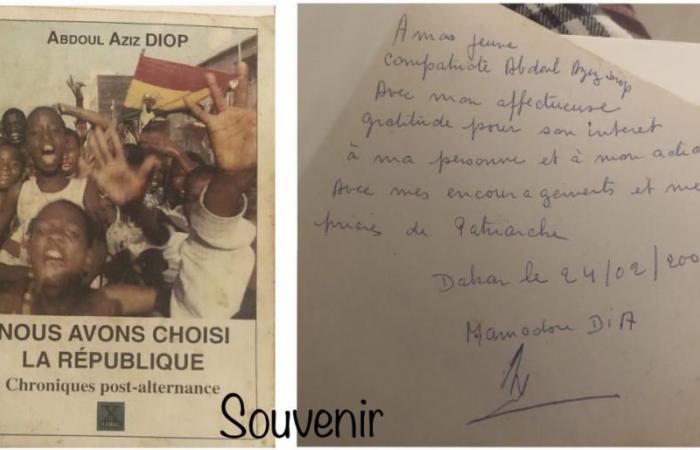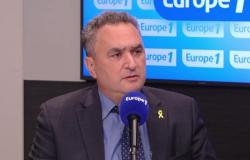Speaking on the occasion of the ceremony of presentation of the significant step report – “introspection, retrospection and prospecting: 50 years of independence in West Africa” -, initiated and produced by the African Meeting for Defense Human rights (Raddho), former judge Ousmane Camara says he was “frightened by what happened” in Senegal during and after the events of December 1962. The former minister in the governments of the presidents Senghor and Diouf considers While “so far we live the same thing”. And Ousmane Camara to add that “in reality, we were not independent. This independence was a lure. All our problems arise from that ”. It is in his eyes, “Senghor and Dia were only pawns”. This sentence is of great interest although confusedly severe and controversial. Its interest is such that it pushes its author to propose to the country “the holding of Estates General of the history of Senegal”. But this is where everything is complicated since “history, warns the great Argentinian novelist Enesto Sabato, is made of oversights and sophisms”.
It was not until 1979, five years after his release from prison and three years after his amnesty, that teacher Mamadou Dia – who was, for thirteen years, the secretary general of the Senegalese Democratic Bloc (BDS), senator, MP for the French National Assembly, deputy for Senegal, mayor of Diourbel and president of the Government of the Government of Senegal -, yielded to the pressure of friends and young people to provide his testimony to the political history of Senegal.
Already the victim of a “downside measure” in his teaching career because of his manifest hostility to the colonial authorities and his refusal of the watchwords of the Vichy regime, Dia gave to the creation of the BDS “the meaning of ‘A protest against the SFIO policy, which resulted in the subservient to a European political party. ” For, as Senghor said, “killing the old Senegalese man” rather tempted by the “customer party” and the “reshuffle of the ideal of formerly”, Dia, animated by a deep conviction and an absolute disinterestedness, aroused A true “autonomy of thought and action” by challenging, from the release, all stowage to European parties. Very early on, Mamadou Dia shouted his indignation against the “regrettable effects of compromises” which made Dakar and Thiès of occupation cities as a result of the mutation of the bases of the community in punitive military bases and attacks against the peoples who revolt. “As early as 1961, writes Mamadou Dia in his Letters from an old activist (Author’s account, 1991), there have been negotiations with the French government for the total evacuation of the French bases ”. “In the monetary field,” he adds, “our negotiations had provided for the creation of a monetary area in the region, an independent monetary area of the Franc zone. Already, it seems impossible for us not to question what happened later at the detour of “Estates General of the History of Senegal”.
Unlike other witnesses to history, Dia accused Senghor during his lifetime, thus offering him the possibility of responding. “It is to the mutations suffered by the Senghor man that we owe the avatars of Senegal after independence,” says Mamadou Dia in the columns of the monthly expression and combat Andes Sopi. But Dia is not satisfied with an accusation. Senghor’s testimonies in an interview with Bara Diouf, at the end of 1978, did him justice when he was thrown into the face of his government’s action against the working class, the African Independence Party (PAI), pluralism and pluralism and pluralism and pluralism and pluralism and pluralism Democracy between 1959 and 1960. What about the “pawn”? Dia replied himself: “Yes, I have always been friends of France, but never his agent. In 1959, Mamadou Dia addressed De Gaulle “a vigorous letter of protest” – it was his words – and had two French people arrested in a plot against Guinea. Dia thus reacted to a press release released at the time by Radio-Conakry and in which President Ahmed Sékou Touré accused Senegal Support. Dia acts as a friend of France while defending himself from being the agent or the “pawn”. It is that “nowhere in the Bréviaire du Politique, it is written the incompatibility between nationalism in acts and friendship for other peoples whose leaders respect your personality and do not trample your rights”. Dia tried to widen the field of cooperation in Senegal with the rest of the world. He also advocated “a solidarity of condition with the third world” against “extroverted cooperation”, a factor of “economic servitude”, perceptible through, among others, “the general import program (PGI) according to which, on the pretext Save currency, imports from Senegal outside the EEC are subject to licenses. ” The enlargement of relations with Africa south of the Sahara Achoppa, on the other hand, on “the reversal of trend or the era of self-colonization”.
-We know the rest that revolves Ousmane Camara, pushing him to ask: “Why in 2011 we have neither water nor electricity? Dia also deplored the state of speaker of a country which was “the spearhead of the development of Africa, at the dawn of national independence”. We must start by saying it if we want “general states of history” for action. Mamadou Dia contributes through his work to it “that one will not be wrong to read as a political will to the address of the youth of Africa”.
In image, on the front of the virgin page of my collection of chronicles (October, 2003), the words of President Dia written by his wife under his dictation and which he himself signs his hand of the good Senegalese causes, himself, in his hand of Patriarch, African and global.






